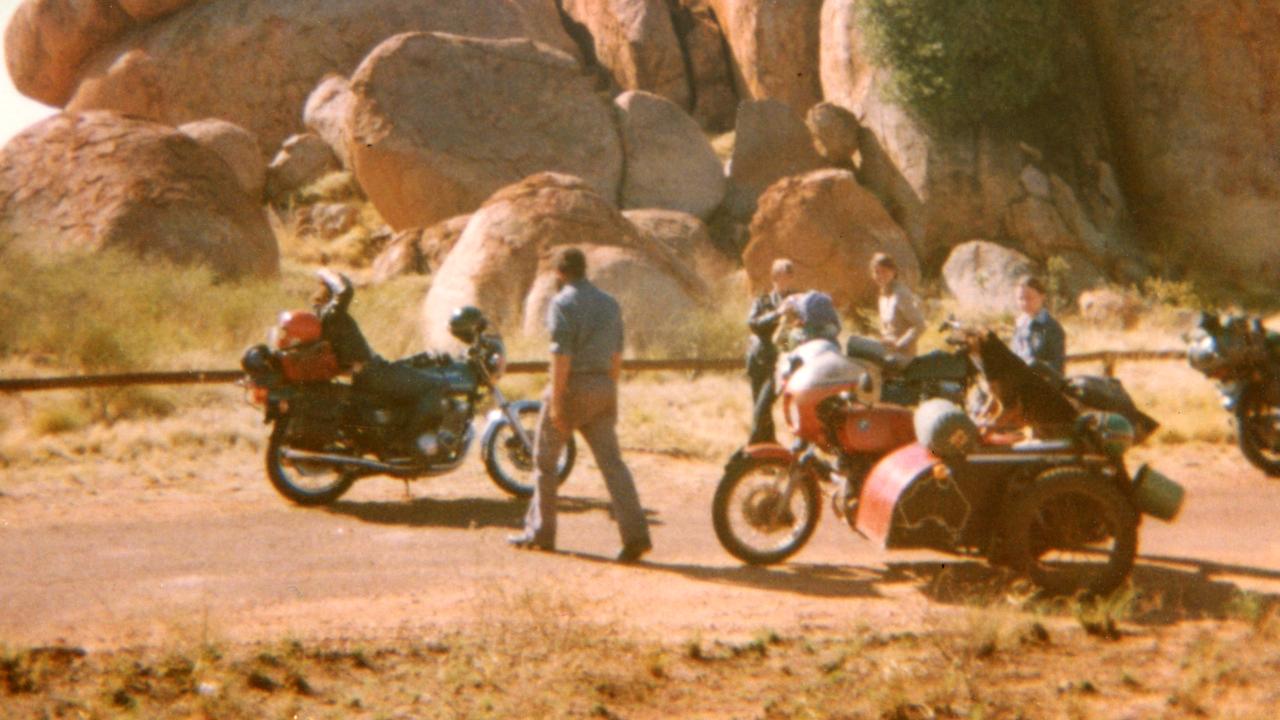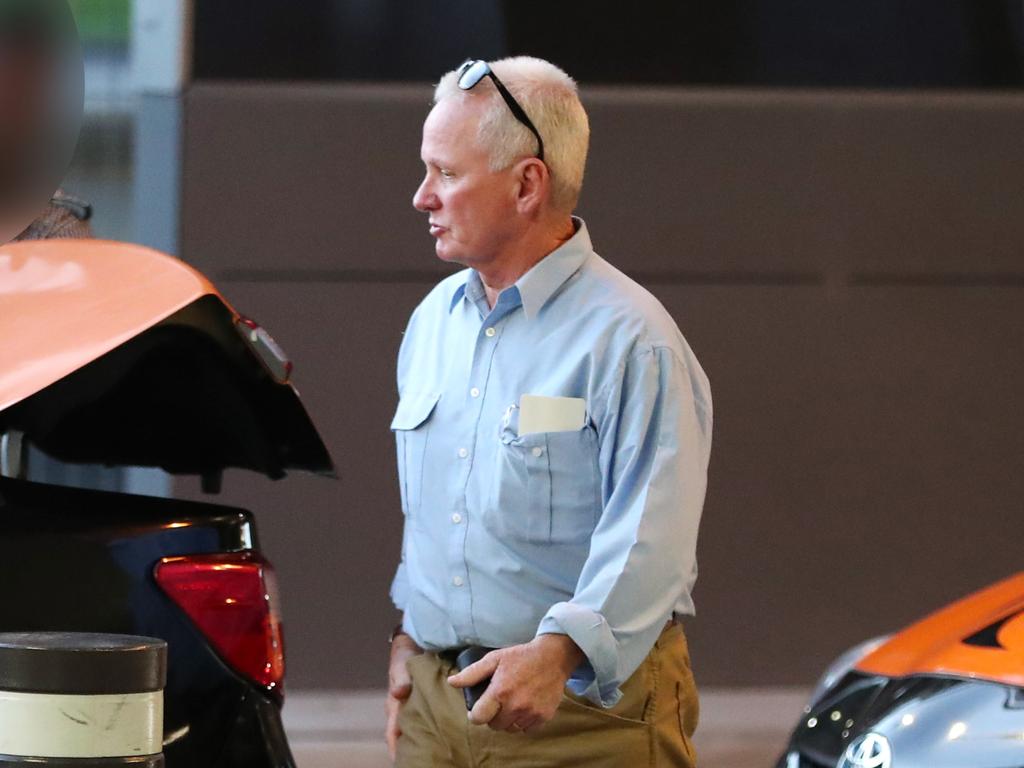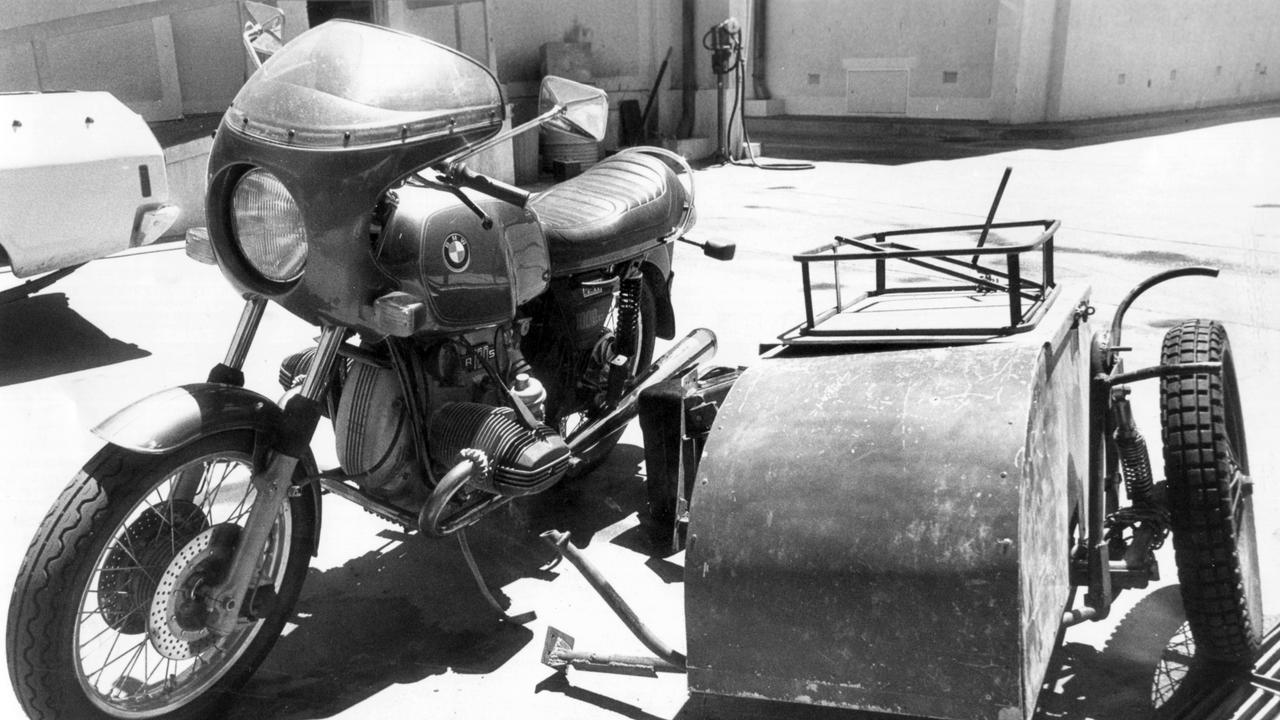Spear Creek deaths: Cold case triple-murder charges dropped over 1978 deaths of Karen Edwards, 23, Timothy Thomson, 31, and Gordon Twaddle, 21,
The man accused of the 1978 Spear Creek killings has issued a statement after the charges were dropped the morning of his trial.

Police & Courts
Don't miss out on the headlines from Police & Courts. Followed categories will be added to My News.
Bruce Preston has hit out at the police for charging him with the Spear Creek triple murders, claiming evidence was misstated to build a case against him, either maliciously or through shoddy police work.
Murder charges brought against the man accused of the 1978 Spear Creek killings have been dropped on the morning his trial was due to begin.
In a statement released after prosecutors dropped the murder charges on Monday, Mr Preston said the allegations had wrongly sullied his reputation and that he hoped it was not too late to find the true killer.
Mr Preston, 67, had been scheduled to face a four-week trial beginning in the Brisbane Supreme Court on Monday.
But instead the Crown entered a nolle prosequi, indicating it would not proceed with the indictment, discharging him on three counts of murder.
The charges related to the unsolved killings of Karen Edwards, 23, Timothy Thomson, 31, and Gordon Twaddle, 21, who were three days into a trip around Australia in 1978 when they were allegedly killed.
Police believe the trio were lured into bushland near Mount Isa and shot.

Preston, who was represented by solicitor Tony Stolar and barrister Russell Pearce, welcomed the decision to abandon the case against him.
“The cold case investigation focused unfairly on Bruce Preston and lacked objectivity,” Mr Stolar said in a statement issued on behalf of Mr Preston.
“The DPP’s decision to end the prosecution of Bruce Preston avoids the risk of a serious miscarriage of justice, and allows Bruce to resume what is left of his life.
“His immediate nightmare may be over, but this saga imposed a significant financial burden on Bruce and his family, for which, short of an ex gratia payment by the Queensland Government, there is no recompense.”
He said Mr Preston, a former prison officer, had been held in solitary confinement for 10 months after his arrest in 2019 due to his previous corrections employment, and once granted bail had complied with stringent bail conditions for more than three years.
“There is also the emotional cost which cannot be quantified,” Mr Stolar said.
“Bail restrictions prevented Mr Preston from engaging with extended family, meaning he missed family events, including the birth of a grandchild.
“His good reputation was wrongly sullied, and he was unable to respond publicly.”
Mr Stolar said the 1970s police investigation had established unequivocally that Mr Preston was not involved in the deaths, and the reasons were detailed in a 1980 report to the coroner.

“Despite its fanfare, the ‘cold case’ investigation achieved no more than injustice to Mr Preston, and false hope for the next-of-kin of the real victims, Mr Thomson, Mr Twaddle and Ms Edwards – who, it must never be forgotten, were brutally murdered,” Mr Stolar said.
“The 1980 police report was eventually disclosed to Mr Preston’s legal team. Analysis of that report shows the ‘Cold Case’ investigation had – either maliciously or through shoddy police work – misstated the evidence to build a case against Bruce Preston.”
He said that report was used in Mr Preston’s successful bail application 294 days after his arrest.
“Is it Bruce Preston’s fervent wish that he be allowed to enjoy what is left of his retirement – and he hopes it is not too late to identify the true killer of Mr Thomson, Mr Twaddle and Ms Edwards,” the statement said.
Mr Preston became a suspect in the case after police found Mr Thomson’s red motorcycle in his possession.
He has adamantly denied ever meeting the trio or being involved in their deaths, and said he stole the bike himself after seeing someone else on the side of the road trying to start it.
Then aged 23, Preston pleaded guilty to theft and was fined $300.
FULL STATEMENT
Almost 45 years ago, a comprehensive police investigation established, unequivocally, that Bruce Preston did not commit the Spear Creek murders.
How and why Bruce was cleared was explained by police in their 1980 report to the Coroner.
Bruce co-operated fully both with that police investigation, and the “cold case” investigation.
Despite its fanfare, the “cold case” investigation achieved no more than injustice to Mr Preston, and false hope for the next-of-kin of the real victims, Mr Thomson, Mr Twaddle and Ms Edwards – who, it must never be forgotten, were brutally murdered.
The 1980 police report was eventually disclosed to Mr Preston’s legal team. Analysis of that report shows the “cold case” investigation had – either maliciously or through shoddy police work – misstated the evidence to build a case against Bruce Preston.
The report was drawn to the Supreme Court’s attention almost 10 months – 294 days to be precise – after Mr Preston had been arrested in a blaze of publicity, denied bail and (because he had been a prison officer) held in solitary confinement.
In January 2020, Justice Davis recognised that evidence against Bruce Preston had been exaggerated.
He granted the application for bail – a rare occurrence in a murder case – finding the arresting officer, Detective Sergeant Nathan McIntosh, had overstated the case.
Concerning, evidence had probably been exaggerated throughout the “cold case” process.
It was likely overstated for police to plant a listening device in Mr Preston’s home, again to intercept his telephones, then to compel his attendance before the CCC, to obtain search warrants and finally, to keep him locked up.
The media was probably sold the same misinformation to encourage continuing publicity. In celebrating their successful “cold case” outcome, no mention was made of the 1980 report.
Suspicion fell on Bruce Preston in 1978 because he took a motor bike that belonged to the deceased man, Thomson.
The then 23 year old explained how he found the motor bike and, believing it to have been abandoned, decided to take it for himself.
Mr Twaddle’s motor bike was also found abandoned in the streets of Mount Isa. Beyond his transgression in taking what he believed was an abandoned motor bike, Bruce Preston has lived an exemplary and law-abiding life.
He served honourably in the Army and then had a long, distinguished and honoured career as a corrections officer in Queensland and in New South Wales.
Mr Preston is everything a callous and cold-blooded murderer is not.
In a Courier Mail podcast at the time of Mr Preston’s arrest, now-retired police Inspector Jim O’Donnell (a principal investigator in 1978) explained how Bruce co-operated with police, and why he was dismissed as a suspect: He didn’t come across to us as being a triple murderer. … He was, you know, very calm. He wasn’t agitated. He wasn’t nervous. He was very cooperative. He was happy to say, tell us everything that happened. …
Never the strongest suspect, police also corroborated the explanation Mr Preston provided.
Many witnesses are now deceased. However, in recent weeks Mr Preston insisted his legal team work collaboratively with the DPP to ensure all admissible evidence was able to be placed before a jury.
As preparation of the trial advanced, it became clear the matter should proceed no further.
Put simply, nothing has changed: Bruce Preston is patently not the murderer, and there are other obvious suspects.
The “cold case” investigation focused unfairly on Bruce Preston and lacked objectivity.
The DPP’s decision to end the prosecution of Bruce Preston avoids the risk of a serious miscarriage of justice, and allows Bruce to resume what is left of his life.
His immediate nightmare may be over, but this saga imposed a significant financial burden on Bruce and his family, for which, short of an ex gratia payment by the Queensland Government, there is no recompense.
Mr Preston endured ten months in solitary confinement and, when released on bail, had to comply with onerous obligations for the next three and a half years.
There is also the emotional cost which cannot be quantified.
Bail restrictions prevented Mr Preston from engaging with extended family, meaning he missed family events, including the birth of a grandchild.
His good reputation was wrongly sullied, and he was unable to respond publicly.
Mr Preston is grateful to those friends, associates and former work-colleagues who, knowing the man, have never doubted his innocence.
Ironically, he also acknowledges Goulburn police (with whom he formerly worked closely) for their professionalism, encouragement and good humour, over the years he was forced to report on bail.
Is it Bruce Preston’s fervent wish that he be allowed to enjoy what is left of his retirement – and he hopes it is not too late to identify the true killer of Mr Thomson, Mr Twaddle and Ms Edwards.



